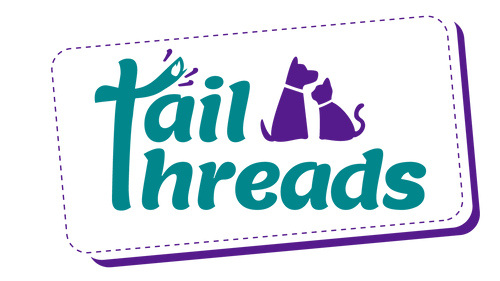Cardigan Welsh Corgis, also known as CWCs, is a small breed of herding dogs that have captured the hearts of many with their big personalities and adorable looks. Originally bred in Wales as farm dogs, CWCs have become a popular breed for families due to their loyalty, affectionate nature, and playful temperament. In this article, we'll explore everything you need to know about the Cardigan Welsh Corgi breed, from their appearance to their personality, habits, grooming needs, health care, and more.
Cardigan Welsh Corgis Breed Characteristics
- Origin: Wales
- Size: Small to Medium (10.5 to 12.5 inches)
- Weight: 25 to 38 pounds
- Lifespan: 12-15 years
- Breed Group: Herding Dogs
- Activity Level: Moderate
- Barking Level: Moderate
- Attitude to Other Dogs: Good, but socialization is necessary
- Attitude to Cats: Good, but socialization is necessary
- Attitude to Kids: Good, but supervision is recommended
Cardigan Welsh Corgis Appearance
CWCs are a small, sturdy breed with a long body, short legs, and a fox-like appearance. They have a double coat of fur that is typically red, black, or brindle with white markings. Their eyes are large and round, and their ears are pointed and stand upright. They have a broad and flat skull, a black nose, and a short, tapered muzzle. Their tail is long and bushy, and their legs are muscular and sturdy.
Cardigan Welsh Corgis Personality
CWCs are known for their big personalities and playful nature. They are affectionate and loyal to their owners, making them excellent family pets. They are also intelligent and alert, making them great watchdogs. However, they can be stubborn and strong-willed, so early training and socialization are essential. They thrive on attention and love to be around people, but they can also be independent and enjoy spending time alone.
Cardigan Welsh Corgis Habits
CWCs are natural herders and have a strong prey drive. They love to chase and may try to herd children or other pets. They also have a tendency to bark, so training and socialization are crucial to prevent excessive barking. CWCs are moderate-energy dogs and require regular exercise to stay healthy and happy. They enjoy going for walks, playing fetch, and participating in dog sports.
Training and Nutrition Advice for Cardigan Welsh Corgis Owners
CWCs have a tendency to gain weight, so it's important to monitor their food intake and provide them with regular exercise. They thrive on a high-quality diet that is rich in protein and other essential nutrients. It's also essential to provide them with plenty of mental stimulation and training to keep their minds active. Positive reinforcement training is recommended, as CWCs can be sensitive to harsh punishment.
Healthcare for Cardigan Welsh Corgis
CWCs are generally healthy dogs, but they are prone to certain health issues, including hip dysplasia, degenerative myelopathy, and progressive retinal atrophy. Regular vet check-ups, vaccinations, and preventative care are essential to keep your CWC healthy. It's also important to keep their teeth clean, their ears dry and clean, and their nails trimmed.
Cardigan Welsh Corgis Grooming
CWCs have a double coat of fur that sheds seasonally. Regular brushing is essential to keep their coat healthy and prevent matting. During the shedding season, more frequent brushing is necessary to remove loose hair. CWCs should be bathed as needed, and their nails should be trimmed regularly.
The Advantages of the Cardigan Welsh Corgis
- Great companionship: Cardigan Welsh Corgis are very loyal, affectionate, and loving dogs that make great companions for people of all ages.
- Easy to train: These dogs are intelligent and eager to please, making them easy to train. They excel in obedience, agility, and herding trials.
- Low-maintenance exercise needs: Cardigan Welsh Corgis are energetic and enjoy outdoor activities, but they do not require a lot of exercises, making them a great choice for people with busy lifestyles.
- Good watchdogs: These dogs are naturally protective and territorial, making them great watchdogs. They are quick to alert their owners of any perceived danger.
- Versatile: Cardigan Welsh Corgis excel in a variety of activities, including herding, agility, obedience, and even therapy work. They are also great family pets.
The Disadvantages of the Cardigan Welsh Corgis
- Health problems: Cardigan Welsh Corgis are prone to certain health issues, including hip dysplasia, degenerative myelopathy, and progressive retinal atrophy.
- Shedding: These dogs shed heavily and require regular grooming to keep their coats under control.
- Barking: Cardigan Welsh Corgis have a tendency to bark excessively, which can be a problem for some owners.
- Stubbornness: These dogs can be stubborn and independent-minded, making training a challenge for some owners.
- Not suitable for small spaces: Due to their high energy levels, Cardigan Welsh Corgis are not well-suited for small apartments or living spaces.
Curious Facts about the Cardigan Welsh Corgis
- The breed has been around for over 3,000 years and is believed to have originated in Wales.
- The breed was used as a cattle herder, and its low stature allowed it to nip at the heels of cattle without being kicked.
- Cardigan Welsh Corgis were bred with Dachshunds to create the Corgi-Dachshund mix known as the "Dorgi."
- Queen Elizabeth II of England is a well-known lover of the breed and has owned over 30 Cardigan Welsh Corgis during her reign.
- The Cardigan Welsh Corgi is one of two Corgi breeds, the other being the Pembroke Welsh Corgi.
In summary, the Cardigan Welsh Corgi is an intelligent, loyal, and versatile breed that makes a great companion for people of all ages. While they have some health issues and high shedding, their low-maintenance exercise needs and watchdog abilities make them a great choice for many households. Additionally, their rich history and popularity with famous figures make them a fascinating breed to learn about and consider as a pet.

